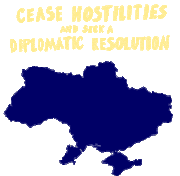|
Libluini posted:Uh, about Yemen. This reads like nothing is left from the regular government. Nothing important, anyway. Wouldn't that make the rebels now the real government and the remnants of the old the separatists? thats a good point, by destroying the legitimate government of Hadi, the UAE just gave the Houthi's and their Allies a massive propaganda victory as the inheritors of the 'true united yemen' movement. Lol what a loving disaster for KSA all this is, what a loving disaster.
|
|
|
|

|
| # ? May 28, 2024 04:31 |
|
Our propaganda was pretty subdued about the southern seperatists we are supporting. This comes as a surprise to me after alot of news outlets and analysts were saying the UAE is calling the shots and yanking MBS by the collar, so why would they backstab him, was Hadi's government wholly a saudi gamble that didn't jive well with the UAE? I need someone to explain this to me.
|
|
|
|
Fizzil posted:Our propaganda was pretty subdued about the southern seperatists we are supporting. This comes as a surprise to me after alot of news outlets and analysts were saying the UAE is calling the shots and yanking MBS by the collar, so why would they backstab him, was Hadi's government wholly a saudi gamble that didn't jive well with the UAE? the whole reason and backbone behind Saudi's and it's allies intervention into yemen was (ostensibly) to support the Hadi government in the face of the Houthis and that Hadi was the legitimate government of Yemen. In the meantime, the UAE was building for itself a separate fiefdom and arming and supporting the seperatists and building military bases in yemen Socotra ilsand. this was really ramped up when the GCC started to implode after the qatar situation. Later, as the situation didnt improve and now the houthis are bombing saudi and the entire yemen war was a disastrous failure, this coup by the seperatist forces backed by the UAE (and possibly nodded to by saudi) has completely destroyed any claims to legitimacy behind the Saudi intervention and the 'arab alliance'. So now, not only have they undermined the entire reason behind the war, they've undermined the only claim to legitimacy they have (thus handing the Houthis a propaganda Coup) and now the UAE is saying to Saudi 'Welp looks like you guys lost and are hosed so we might as well split the country in two, put our guys in charge of what little we hold and let Saudi deal with the fact that they now have a divided yemen with the vast majority of the population under the control of a Permanently hostile Iranian allied force'. Why is there a war happening if there's no victory in sight and no legitimate government to back?!
|
|
|
|
Starting to wonder how long we have until MBS gets Khashoggid. The Yemen war was his baby.
|
|
|
|
Darth Walrus posted:Starting to wonder how long we have until MBS gets Khashoggid. The Yemen war was his baby. Arab leaders are never punished for failing. that's the reason why they're there. to fail and give everything to their sponsors and protectors. If arab regimes were ever punished for losing and failing the egyptian regime wouldve been replaced decades ago, but it's precisely because they fail and are only good for their foreign sponsors that they're backed to stay in power. Al-Saqr fucked around with this message at 23:11 on Aug 10, 2019 |
|
|
|
Iran-Russia is such a weird relationship, because they both hate each other but they dislike the US more I mean, that's kind of the entire middle east, really, but
|
|
|
|
Grapplejack posted:Iran-Russia is such a weird relationship, because they both hate each other but they dislike the US more I donít think we have much evidence they ďHateĒ each other. They have a longish history as neighbours and regional powers and all the baggage that comes with it. Their relations have been generally good since the fall of the Soviet Union.
|
|
|
|
Iranians would count Russians in the list of "People who have hosed with us recently enough and plenty" yeah, but it's been awhile even so. I think the better word than "hate" would be "leery".
|
|
|
|
At best they're allies of convenience because of Syria and a general desire to thwart American interests in the region, but they're still rivals competing for influence, and Russia balances relationships with other countries such as Israel and Turkey against their relationship with Iran as well. The skirmishing in Idlib may be intensifying, as the SAA seems to be making some actual progress at the moment, though it remains to be seen if this is going to be a concerted effort the rebels can't handle (as we saw in the offensive where they took the eastern third of Idlib before Turkey set up the observation posts), or if this mostly just stalls out like the other pushes in recent months.
|
|
|
|
Iran's relationship with Russia is extremely rocky at best and without the mutual bogeyman of the US would be far, far worse. You can't even really call them friendly so much as they share a lot of mutual enemies. Also it is just amazing that the Saudis managed to bungle their occupation/invasion/incursion of yemen so badly. Somehow they're in a substantially worse position now than they even were before.
|
|
|
|
Sinteres posted:At best they're allies of convenience because of Syria and a general desire to thwart American interests in the region, but they're still rivals competing for influence, and Russia balances relationships with other countries such as Israel and Turkey against their relationship with Iran as well. Yeah they took back a major supply route between two of their towns in northern Hama recently, that front seems quiet. Pretty much took back what the last rebel offensive achieved. Right now getting shredded by ATGMs in a small salient they have created, they will probably be forced to withdraw if they canít expand it.
|
|
|
|
Who's even keeping the rebels in supply at this point? I'm unclear who their allies are anymore.
|
|
|
|
Haystack posted:Who's even keeping the rebels in supply at this point? I'm unclear who their allies are anymore. Turkey
|
|
|
|
This might be an absurd question, but is it population density that leads to the distinction between a North and a South Yemen, and not an East and a West? It strikes me as odd that the territorial expanse of the former South Yemen reached further north than that of the ostensible North.
|
|
|
|
Numerical Anxiety posted:This might be an absurd question, but is it population density that leads to the distinction between a North and a South Yemen, and not an East and a West? It strikes me as odd that the territorial expanse of the former South Yemen reached further north than that of the ostensible North. I'm tempted to say some of it is topographic, but that's definitely a simplification.
|
|
|
|
Numerical Anxiety posted:This might be an absurd question, but is it population density that leads to the distinction between a North and a South Yemen, and not an East and a West? It strikes me as odd that the territorial expanse of the former South Yemen reached further north than that of the ostensible North. the eastern part of Yemen is only sparsely inhabitated and practically irrelevant politically. The monikers make sense from the perspective of Aden and Sana'a, which were always where western journalists covering the area were based. It's also worth pointing out that North/South Yemen are exonyms and while the two regions were politically independent North Yemen went by the name of the Yemen Arab Republic and South Yemen used the name the People's Democratic Republic of Yemen. Fizzil posted:Our propaganda was pretty subdued about the southern seperatists we are supporting. This comes as a surprise to me after alot of news outlets and analysts were saying the UAE is calling the shots and yanking MBS by the collar, so why would they backstab him, was Hadi's government wholly a saudi gamble that didn't jive well with the UAE? It's really more of a front stab, Saudi and the UAE have had conflicting strategies in Yemen since almost immediately after the intervention began. One important issue is that Hadi is closely allied to a political party associated to the Muslim Brotherhood. While Saudi Arabia decided they could deal with that, the UAE was reportedly very unhappy with this. There is also speculation that the leaders of the UAE looked and the Yemen conflict and came to the conclusion that it was impossible to defeat the Houthi and install Hadi back in Sana'a. Instead, they see creating at least a defacto independent South Yemen as a more realistic consolation prize, that can at least act as a perpetual counterweight against the Houthi. With these two points in mind, dislike for Hadi's political coalition and desire to separate the north from the south, it makes sense that the UAE would support the Aden separatists. Saudi Arabia by contrast is much more determined to win the war outright. The have to deal with Houthi raids across their border, and with Hadi based in Saudi Arabia they pretty much have total control over him. This tension between Saudi and UAE strategy has been ongoing since the conflict started, and is exaccerbated by poor coordination, leadership, and planning. The war was always very poorly conceived and never had a high chance of succeeding, so this kind of embarrassing nonsense is just more of the same.
|
|
|
|
Dreissi posted:I kinda wish we did :/ There never was much hope for Afghanistan. It pretty much began its death in 1978 with the fall of Daoud Khan's government and was killed in the 80s during the Soviet occupation, everything after that has been fighting over a rotting corpse. (ended up writing alot more than I intended here) The government before 1978 was actually kind of popular and somewhat effective for what it was, and managed to introduce several modernization reforms, including strengthening the rights and opportunities of women. But it wasn't really to last because of hostility building from both Pakistan and the USSR, the former from a stable Afghanistan essentially being a threat to Pakistani sovereignty (especially as Pashtun nationalism was popular) and the latter because Daoud Khan's government, previously tightly allied to Moscow and Afghanistan's communist party (which was mostly a movement for members of the military, due in part to officer-exchange and various other training programs conducted with the Soviets), was making a move away from dependency on them and seeking other allies. Then you have the coup in 1978 that brings down the government and plunges the country into chaos as the new military government faces open revolt (aided in part by Pakistan who before this had been supporting various Islamist movements, inspired by those operating in Iran, chief among those the Hezb e-Islami led by Gulbuddin Hekmatyar, a name you might recognize). Then in come the Soviets in 1979, they covertly assassinate the sitting president to replace him with someone more pliable and begin propping up the military government and fighting the rebels. The new communist military government was in theory committed to the same modernizing reforms as the government they had replaced, but their lack of support in the country and the strategies employed by the Soviets kind of rendered it all irrelevant. The Soviets pretty much approached the war as a purely military-strategic matter, where building support for the government and aiding it in establishing the required institutions and carrying out policies and reforms never really entered into it. It was not much further helped by the fact that the strategy they chose to employ was pretty much one of systematic depopulation and retaliation to deprive the rebels of sustenance and recruits. And while the Soviets indeed were successful in killing lots of rebels (and even more civilians), they never really got control of the overall situation and they became harder pressed when the rebels began to receive massive aid from America and the Saudis*. So what essentially happened was that throughout the 80s, rural infrastructure and agriculture (Afghanistan actually was known as quite a bountiful place earlier in history, with fertile lands and rich agriculture) were pretty much completely destroyed, the countryside was littered with landmines (there's still no country in the world where there's more landmines than Afhanistan, most of it is still from the 80s, the continuing war and instability have pretty much prevented any effective cleanup) and UXO, and the country was thoroughly depopulated with something like half the population becoming refugees, either external (mostly ending up in Pakistan and Iran) or internal (crowding the cities and creating large urban slums). Not to mention that it left something like 1-2 million Afghans dead and countless more maimed. * The Americans and Saudis essentially provided the funds to acquire weapons, but the Pakistanis were still important as they were only country willing to openly support the rebels and they had great influence over the details of which groups were armed, though the Americans at least retained some influence and their thoughts on who should be supported were often at odds with the Pakistanis so you ended up in a situation where groups who were pretty much opposed to each other on most issues except opposing the Soviet invaders were being armed and trained at the same time). So what you then had was a generation of orphans and cripples who grew up with their homes and family units destroyed, surrounded by war and violence, and, for those in the Pakistani refugee camps, had their education mostly provided by Saudi religious organizations. Then when the Soviets give up and leave the country they destroyed, the Americans are satisfied and show no interest in providing any sort of support for rebuilding efforts, negotiation between the government and the various rebel groups (not to mention negotiation between the rebel Mujahideen), because this would have cost alot of money and effort with little to show for it except possibly, a long way down the line, maybe an Afhanistan that wasn't a war-torn wasteland. So you have a new phase of the civil war, which becomes more multifaceted and more "proxy-ish" with various factions supported by Pakistan, Iran, Saudi-Arabia, Turkey, and (eventually) Russia against each other. Somewhat surprisingly the previously Soviet-supported government (which had rebranded itself as an Islamic Republic in the late 80s) remains relevant for a while and even manages to garner a significant amount of public support that it had completely failed to do during the years of Soviet intervention, though it essentially collapses when one of their more influential generals, a chap by the name of Dostum (another name you might have heard of), defects over to the Mujahideen rebels (seeing as the rebels weren't really in anyway unified and were actively fighting each other, he was pretty much going into business for himself) along with his forces. The various Mujahideen then fight against each other, and Hekmatyar and Dostum besiege and essentially destroy much of over-crowded Kabul. Then from 1994 to 1996 a new faction, calling themselves the Taliban, "students", enter the action, initially made up mostly of younger Pashtuns who had grown up in refugee camps in Pakistan. They (with significant support from Pakistani Intelligence) defeat and absorb other Mujahideen groups and by 1996 set up an Islamic Emirate they establish de facto control over most of the country, remaining opposed by an umbrella organization of opposed Mujahideen factions known as the Northern Alliance, who were now supported mostly by Turkey, Iran and Russia. The Taliban give sanctuary to various foreign, mostly Arab, Jihadists who had arrived in the 80s to fight the Soviets, many of whom were now planning and conducting attacks against the West. Then comes 9/11 and I'd love to go on, but as I said most of what came after the 80s has essentially been fighting over a corpse with foreign interests intruding without much of a clear plan for anything. Randarkman fucked around with this message at 09:16 on Aug 12, 2019 |
|
|
|
Iím watching the Ken Burns Vietnam series and itís giving me a lot of acid flashbacks to all of the positive things our government has said about the situation in Afghanistan for the last nearly two decades now. I figure it will also end the same way, with us eventually leaving and things going on there without us
|
|
|
|
It must be hard for a superpower to accept that the world does, in fact, spin on without them meddling with it all the time.
|
|
|
|
CrazyLoon posted:It must be hard for a superpower to accept that the world does, in fact, spin on without them meddling with it all the time. True enough, but I also believe that once somebody has first begun meddling they kind of make the situation their responsibility. Now it is also their responsibility to attempt to stop being a negative influence, but just taking your ball and going home after you've thrown it all over the place and smashed up everything is incredibly loving lovely. I believe that a big part of the reason for the state of Afghanistan is that the US did absolutely nothing to facilitate reconstruction or reconciliation after the Soviets left in 1989, after they had made themselves a pretty influential player in the state of the country. Though of course that would have required alot of money towards civic and economic development and the expenditure of lots of diplomatic effort, rather than just throwing weapons around. A bigger part is that the Soviets pretty much destroyed the country, and if you want to bring Vietnam into the picture, Afghanistan didn't really have anything close to the ability to rebuild following the end of the war and much less potential for development and expansion of trade, and Afghanistan was also arguably much more thoroughly devastated than Vietnam was (and the Afghan rebels didn't really have any unifying movement or government to unite them after the war). That said the US bears alot of responsibility, and that responsibility goes back further than 2001. And at the same time when I say that I believe the US still bears responsibility for the situation in Afhanistan I am also pretty confident that they are not truly willing to do what's actually necessary.
|
|
|
|
Well, it kinda goes back to what I've always said, that just about every country with the ability to project force in some part of the world, that isn't their home territory (be it any of the big five permanent security council members or even an upstart like Israel, Iran, Pakistan or India), is projecting it for their own short-term national interests first and foremost, thus automatically making them the least suitable to do it as well. I don't think it's appreciated enough just how insanely lucky Europe got after WW2 in general, that back then it was actually thought as wise by those in charge to pour in reconstruction money into it from the US, not out of any benevolence whatsoever, but because the US saw helping European nations as helping its own global agenda by negating poverty as much as possible, since that could lead to revolutions, which would lead to communism (at least that was the scare back then that motivated them into it). It was intervention too, but moreso for long-term national interest (help others, so that in the long run it helps you) and it worked! But the more the 20th century progressed, the less that kind of long-term effort was made and the more they preferred quick and dirty CIA poo poo for short-term gains that lasted no more than a couple of decades before it started fraying at the seams. And after half a goddamn century of that poo poo in the exact same spots, that are now terrorist hotbeds, I'm sorry but...that is no goddamn coincidence. Of course it is a more elegant way to do it than the Soviets, who were more than happy to brute force it and saw their targets (and efforts) burn down that much faster and more thoroughly too. Nowadays in the 21st century tho, with the War on Terror setting such a wonderful tone for how it should be done in this century, not only is the ability to project power lower than it used to be (since there is no more will for it without the boogeyman of communism or capitalism on either side and who the gently caress knows how many terrorist cunts popping up on all sides of the spectrum), now it's just all cynical short-term national interest interventions that exploit and milk money and weapons testing opportunities to the max. Just drop a burning match and walk away while it all burns while waving 'Mission Accomplished!' banners around you. You really would need some kind of supra-national organization (and the UN is deffo not it) that could make any single country on the planet think twice before it just does whatever the gently caress it feels like it can get away with. But short of aliens invading us, and setting something like that up, getting one started with even a fraction of the integrity needed, would be nigh-impossible with the current state of the world. CrazyLoon fucked around with this message at 19:24 on Aug 12, 2019 |
|
|
|
it's worth pointing out the US isn't really leaving Afghanistan even if this agreement is signed, it's just withdrawing the additional forces deployed by Trump. This is just going back to how things were when Trump first took office. That means the US air force will still be assisting Afghan troops, it will still assist with training, and it will still spend money on infrastructure etc. Because of the ethnic component of the Afghan war the Taliban will have a hard time winning outright, since they will never have popular support throughout the entire country. I'm curious Randarkman, what you think is "necessary" for the US to do about the situation in Afghanistan? Presumably you mean necessary to defeat the Taliban? Today that would certainly require hundreds of thousands of soldiers deployed for many years. It's not hard to understand why it's unattractive to spend another trillion dollars on such an uncertain effort, at some point we have to admit there are limits to American obligations. Even then without someway to stop heroin smuggling it would be nigh impossible to permanently pacify the countryside. The only way to solve that problem is probably to slash demand in Europe, which is beyond America's power.
|
|
|
|
Squalid posted:Even then without someway to stop heroin smuggling it would be nigh impossible to permanently pacify the countryside. https://www.youtube.com/watch?v=6E04_iWZSmo&t=67s The war is what makes heroin more profitable than any other way to earn money there. The more lives and poo poo gets destroyed, the more profitable it is to do it since all other venues of making a dime are ruined. Here's what the US can do to at least dampen the trade - get entirely the gently caress out and suggest surrender. But superpowers can't do that, no sir. Even Vietnam was 'a tie' if you talk to some morons nowadays lol. CrazyLoon fucked around with this message at 19:33 on Aug 12, 2019 |
|
|
|
If it's true that these towns signed reconciliation agreements with the regime, it's pretty awkward given the presence of a US base at Tabqa: https://twitter.com/syria_map/status/1160974465179750400
|
|
|
|
Squalid posted:I'm curious Randarkman, what you think is "necessary" for the US to do about the situation in Afghanistan? Presumably you mean necessary to defeat the Taliban? Today that would certainly require hundreds of thousands of soldiers deployed for many years. It's not hard to understand why it's unattractive to spend another trillion dollars on such an uncertain effort, at some point we have to admit there are limits to American obligations. Even then without someway to stop heroin smuggling it would be nigh impossible to permanently pacify the countryside. The only way to solve that problem is probably to slash demand in Europe, which is beyond America's power. To be honest I kind of view the Taliban more as a symptom than a cause really. I guess you would have to defeat or pacify them in some way to accomplish the general goal of rebuilding the country and creating some sort of stability, but what I'm mostly thinking off is some kind of massive rebuilding effort and lots of foreign aid for such projects, lots more than is currently being done. To be honest I don't even really know how feasible it really is. Afghanistan is kind of depressing in just how hosed up it is and how difficult the problems facing it are to grasp. Honestly I don't know, but I do know that it requires more than just deploying military force. It requires an engagement and an investment of time, effort and money that America just isn't willing to expend, and the outcome would probably be far from certain. There would also be the extremely delicate matter of doing anything of this sort of scale without it all becoming a kind of colony. I might have sounded more confident than what I actually am.
|
|
|
|
CrazyLoon posted:https://www.youtube.com/watch?v=6E04_iWZSmo&t=67s Noone wants to be responsible for what the Taliban will/may pull when the us-backed government falls.
|
|
|
|
tbh I'm kind of suspicious of the idea that if the US had just thrown enough money at Afghanistan in 1990 it could have prevented the Taliban takeover or ended the civil war. You can't reconstruct Kabul while different rebel factions are taking turns shelling the city. . . it just doesn't work. You have to end the war first, and then you can do reconstruction. The US however had no real way to end the Afghan civil war after the Soviet withdrawal. They could have funneled more weapons and cash to preferred factions, but as we've seen in Syria that behavior tends to make conflicts last longer and be bloodier than doing nothing. Nor could anyone prevent Pakistan and Saudi wackos from backing extremists. You can't make people care about democracy or reject tribalism/ethno-nationalism just by giving them money. Since 2001 the US and it's allies have spent many billions on Afghan infrastructure and economic development. Unfortunately highways are not very useful if they get mined as soon as they are paved so that spending has had limited effect. It seems like nobody knows what to do in Afghanistan, or even what winning would look like. At this point its entirely plausible fighting could go on another decade. Even if all US soldiers pull out the Taliban aren't like the North Vietnamese, the rest of the country isn't just going to jump into their lap. The Uzbeks and Hazara will fight them to the end.
|
|
|
|
I mean, there is no plan at this point beyond propping up the government and training the Afghani National Army (which is still a joke after a decade).
|
|
|
|
Randarkman posted:(ended up writing alot more than I intended here) Thanks for posting this. You've given me a lot to think about.
|
|
|
|
CrazyLoon posted:back then it was actually thought as wise by those in charge to pour in reconstruction money into it from the US, not out of any benevolence whatsoever, but because the US saw helping European nations as helping its own global agenda by
|
|
|
|
Squalid posted:tbh I'm kind of suspicious of the idea that if the US had just thrown enough money at Afghanistan in 1990 it could have prevented the Taliban takeover or ended the civil war. You can't reconstruct Kabul while different rebel factions are taking turns shelling the city. . . it just doesn't work. You have to end the war first, and then you can do reconstruction. The US however had no real way to end the Afghan civil war after the Soviet withdrawal. They could have funneled more weapons and cash to preferred factions, but as we've seen in Syria that behavior tends to make conflicts last longer and be bloodier than doing nothing. Nor could anyone prevent Pakistan and Saudi wackos from backing extremists. You can't make people care about democracy or reject tribalism/ethno-nationalism just by giving them money. You're right. But in a better world, something genuine should have been attempted from 1989 onwards rather than nothing at all.
|
|
|
|
Cat Mattress posted:creating a large export market for the American industries, since Europe's were largely destroyed so they'd need American machines to rebuild and modernize, preventing a repeat of the 1929 crisis caused by unsold surplus production; in addition the terms of the Marshall plan allowed American industries to get a preferential access to the raw materials produced in European colonies in Asia and Africa since this was before decolonization. As part of the Marshall plan, American agents got to oversee the decisions of European governments, to make sure that they bought and distributed American goods, and that they taught American methods, and so on. It gave them unprecedented level of control and intelligence over European economies, and that's what justified the whole thing. Not any feelgood hippie beatnik mushy stuff about negating poverty to prevent socialist revolutions -- for dealing with that, the plan was Gladio. Just like in South America. I think the reconstruction and post-war aid given to Japan also possibly falls into the same mold. Though the US occupation authorities there also pushed through some policies and reforms that seem incredibly unexpected to us today. Like conducting land reform and essentially putting an end to landlordism in agriculture and promoting union membership among industrial workers and breaking up the industrial cartels. Ultimately it probably came from prevailing thoughts at the time at what created a healthy economy that could serve as a market for American exports.
|
|
|
|
FlamingLiberal posted:I mean, there is no plan at this point beyond propping up the government and training the Afghani National Army (which is still a joke after a decade). ahem, two decades.
|
|
|
|
the ANA was essentially just made up of the decaying remnants of the northern alliance until well into the 2000s except they wore woodland camo (still do i think) supplied by the US military, which is a good indication of how well planned and executed this whole thing has been from the start
|
|
|
|
Randarkman posted:True enough, but I also believe that once somebody has first begun meddling they kind of make the situation their responsibility. Now it is also their responsibility to attempt to stop being a negative influence, but just taking your ball and going home after you've thrown it all over the place and smashed up everything is incredibly loving lovely. Tell me Libya today isn't the same as Afghanistan in the 90s. I wonder what will blow up one day that makes it an absolute necessity for the country to be invaded.
|
|
|
|
Afghanistan has the similar problem like Iraq does, which is that itís full of groups that are never going to agree on a unified national government that can be stable.
|
|
|
|
TheIllestVillain posted:the ANA was essentially just made up of the decaying remnants of the northern alliance until well into the 2000s Woodland is a good camo for Afghanistan though?
|
|
|
|
Orange Devil posted:Tell me Libya today isn't the same as Afghanistan in the 90s. I wonder what will blow up one day that makes it an absolute necessity for the country to be invaded. Libya is miles more advanced than Afghanistan was in 2001. They won't have a taliban-like faction take over, just endless CIA-sponsored civil war Count Roland posted:Woodland is a good camo for Afghanistan though? nobody ever shows pictures of the pine forests and orchards in the southeast but I think they're pretty
|
|
|
|
Cat Mattress posted:It gave them unprecedented level of control and intelligence over European economies, and that's what justified the whole thing. Not any feelgood hippie beatnik mushy stuff about negating poverty to prevent socialist revolutions -- for dealing with that, the plan was Gladio. Just like in South America. No, that's not remotely true. The Marshall Plan was explicitly justified by anti-communism. The US really did care about preventing hunger and etc in Europe, there's no way their actions make sense otherwise. Some influence over economic policy was obviously desirable, but lol if you think Ford or Boeing gave a poo poo about gathering intelligence on Francoist Spain's industry or w/e. It's worth noting that the Marshall Plan was enacted within a context of the UK and France still trying to literally dismantle German industry and reduce West Germany rural serfdom. Put these things in context, the Marshall Plan occurs within a larger context that includes large amounts of other kinds of aid as well as military support for France in the Indochina war. That war was directly against the US desire for decolonization, but rebuilding the French economy and stopping communist advance was viewed as more important. US desire for reindustrialization in Europe was real and none of their actions make sense without it. Randarkman posted:I think the reconstruction and post-war aid given to Japan also possibly falls into the same mold. Though the US occupation authorities there also pushed through some policies and reforms that seem incredibly unexpected to us today. Like conducting land reform and essentially putting an end to landlordism in agriculture and promoting union membership among industrial workers and breaking up the industrial cartels. Ultimately it probably came from prevailing thoughts at the time at what created a healthy economy that could serve as a market for American exports. In the early phase of Japanese reconstruction anti-communism was actually second place to destroying what the occupation authorities described as "Japanese militarism." Land reform, abolishing noble titles, and breaking up the zaibatsu was viewed as a means of taking down the samurai spirit. In fact if you look at the history of US interventions generally land reform is basically omnipresent, the US also helped implement it in Taiwan and pushed hard for it in El Salvador. Generally the US has a distaste for landed nobility which it sees as against Democratic values, and views that kind of agriculture as culturally backward.
|
|
|
|

|
| # ? May 28, 2024 04:31 |
|
Just a quick note: Franco's Spain wasn't included in the Marshall plan. Not arguing the rest.
|
|
|
































